NATIONAL ASSEMBLY
(Law no. 3/96, From 5 April)
The consolidation of the democratic state under the rule of law in the Republic of Angola demands the creation of mechanisms that enable the observance of legality, the defence of the larger interests of the State and the society, and the establishment of Justice in a wider sense.
Therefore, considering the necessity of moralisation and transparency of acts of the Public Administration and the respective agents, as well as of the office holders of the sovereign bodies and to guarantee that the external indications of riches can be effectively controlled, in particular by making the declaration of goods and revenues/profits compulsory, in order to inspire the confidence of the citizens in the public institutions.
Considering the necessity of the National Assembly, in the exercise of its overseeing function, to assume the regulation and management in the fight against the practices and ambitions that may be considered acts of corruption or fraud, crimes against the Public Heritage, abusive exercise of public functions or any other damage of public interests or morality of the administration.
Accordingly, within paragraph b) of article 88 of the Constitutional Law, the National Assembly approves the following:
Article 1
(Creation)
Hereby, the High Authority Against Corruption, on the side of the National Assembly, shall be created.
Article 2
(Definition)
The High Authority Against Corruption is an independent body that functions side by side with the National Assembly and has as objective to develop actions of prevention, investigation and participation for the competent entity in order to take penal or disciplinary action against acts of corruption or fraud committed in the exercise of administrative functions.
Article 3
(Legal personality and autonomy)
1. The High Authority Against Corruption enjoys legal personality and administrative autonomy.
2. The costs of the High Authority Against Corruption shall be covered by a budget inscribed in an autonomous chapter of the Budget of the National Assembly.
Article 4
(Scope)
1. The present law shall be applied to the actions and omissions done against the Public Heritage and what arises from the abusive exercise of public functions or any other damage to the public interests or the morality of the administration, committed by the agents of the Public Administration, Armed Forces, Internal Order, Public Institutions, Public Companies, Concessionaries of Public Services and or from the exploitation of public goods, including those done by office holders of the sovereign bodies, with exception to the provisions in no. 3 of article 8 of the present law.
2. The High Authority Against Corruption exercises its duties all over the National Territory.
Article 5
(Office holders)
The High Authority Against Corruption has a President as office holder, who is assisted by two Vice-Presidents.
Article 6
(Election and form of designation)
1. The President and the Vice-Presidents are elected by the National Assembly with a majority of two-thirds of the Delegates in office, on proposal of any Parliamentary Group, from within national citizens in all their civil and political, of recognised merit, integrity and independence.
2. The candidatures must provide elements of proof of the candidates’ eligibility and the respective declarations of acceptance.
3. The President and the Vice-Presidents are sworn-in in Plenary by the President of the National Assembly.
Article 7
(Independence)
1. The President enjoys independence in the exercise of his functions and shall rule his actions by rigorous respect to the Constitutional Law and other legislation in force.
2. The President performs his activity without prejudice to the use of noncontentious and legal measures provided for in the law and without suspending or interrupting terms of any nature.
Article 8
(Competence)
1. The President shall:
a) investigate on request of the President of the Republic, the President of the National Assembly, the Prime Minister, of any Parliamentary Group, Delegate, Member of the Government, on his own initiative or on denouncement of any duly identified citizen, evidence or notice of acts provided for in article 4 of the present law;
b) promote the carrying out of inquiries, probes, executions of investigations or others to find out the legality of determined acts or administrative proceedings, within the outlines of the relations between the Public Administration and the private entities;
c) oversee the lawfulness and correctness of administrative acts involving interests of the public, in particular awards to construction companies for public works and supply contracts for goods or services, acquisitions or transfer of ownership of public goods, indemnity payments, importation or exportation of goods or services, approval or refusal of credits and the waving of debts;
d) refer cases of criminal nature to the Attorney General’s Office;
e) follow up, always when the circumstances determine so, the proceedings
of any case at the entities in charge for the criminal or disciplinary proceeding;
f) notify about the results of their findings the President of the Republic, the President of the National Assembly, the Prime Minister in case of activities carried out within the scope of the Central Public Administration, and the entities in charge for starting disciplinary or penal action or, when this is the case, the entities in charge for complimentary investigation or inquiry acts, informing the President of the Republic, the President of the National Assembly and the Prime Minister about the deeds of office holders of the sovereign bodies subject to their investigations and which are accommodated within the outlines of their attributions;
g) propose to the National Assembly and the Government the taking of legislative or administrative measures likely to improve the functioning of services and the respect towards the administrative legality, especially in the sense of eliminating the factors favouring or facilitating illicit or ethically reprovable practices, such as the structural disturbance of the economy and the salaries;
h) propose to the National Assembly the Statute and the Internal Regulation of the High Authority;
i) issue the reports requested by the National Assembly or the Government, within the outlines of their attributions;
j) publish, with preventive purpose, the sentences in penal or disciplinary trials and infringements of the outlines of their competence, once gone through trial;
k) elaborate annually the report on their activities, to be presented to the National Assembly.
2. The competences indicated in the foregoing clause shall be exercised when the acts referred to in no. 1 of article 4 of the present law are concerned.
3. The initiative to corruption investigation proceedings provided for in article 65 of the Constitutional Law shall belong exclusively to the National Assembly, through proposal of one-fifth and decision approved by a two-third majority of the Delegates in office.
Article 9
(Statute)
The Statute of the High Authority Against Corruption, to be approved by the National Assembly, defines the structure and organisation of the services, as well as their privileges, category, remuneration and other rights of the President and the Vice- Presidents.
Article 10
(Mandate)
The mandate of the President and the Vice-Presidents has a duration of 4 years, renewable for the same period.
Article 11
(Loss of mandate)
The President and the Vice-Presidents shall loose the Mandate in the following cases:
a) physical or mental disability;
b) incompatibility declared by the National Assembly`
c) explicit surrender with notification to the National Assembly;
d) dismissal due to penal or disciplinary case;
e) decision of two-thirds of the Delegates in office, based on bad performance of their functions.
Article 12
(Substitution)
1. In periods of absence or disability, the President shall be substituted by the Vice- President designated by him or, if none is designated, by the eldest one.
2. In the event of permanent disability, the National Assembly shall elect a new president within 60 days.
Article 13
(Privileges, immunities and incompatibilities)
1. The President and the Vice-President enjoy the privileges and immunities and are subject to the incompatibilities set out in the Law for Magistrate Judges, and are equally subject to the provisions in no. 2 of article 21 and article 27, both of Law no. 15/91, from 11 May.
2. The President and the Vice-Presidents may not perform any other function whatsoever of public or private nature, except those of teaching and scientific research.
Article 14
(Obligation to cooperation)
1. The President, in the exercise of his functions, has the right to the necessary cooperation by the public entities, especially those with judiciary, police, inquiry, inspection or supervising investigation and instruction powers, and, within his sphere of competence, shall assist the Ministry of Justice as well as the Courts.
2. The President, within the outline of his attributions, may request the public entities in charge to carry out any investigations, inquiries, probes, expert reports, analysis, or technical proceedings needed for the finding of facts.
3. Whenever deemed useful or convenient, the President may request the competent public services to temporarily place into the High Authority Against Corruption the required public employees needed for carrying out the proceedings and acts provided for in no. 1 of the present article.
4. The public entities are under obligation to render and deliver the explanations and elements in their disposition to the President, as well as to follow the requests formulated by him, within the outline of their attributions.
5. Those responsible for failure to comply with the provisions in the foregoing clauses shall be liable to the penalties corresponding to the crime of aggravated disobedience, as applicable to the case.
Article 15
(Duty to secrecy)
1. The President, the Vice-Presidents and all agents or helpers are bound to the duty to secrecy regarding the facts to which they gained knowledge in exercising or because of exercising their functions.
2. Exempt from the right of access to explanations and elements in possession of the entities referred to in no. 1 of article 14 of the present law are those constituting a state secret.
Article 16
(Public authority)
1. The President and Vice-Presidents in the outline of their respective competences enjoy the Status of Public Authority.
2. Anybody, besides the suspects, hindering or resisting the performance of the functions of the President or his agents, after having themselves duly identified and presented their credentials, are liable to the penalties corresponding to the crime of aggravated disobedience, besides the possible civil or disciplinary liabilities.
Article 17
(Legal proceedings)
1. The acts and proceedings of the High Authority practised in the fulfilment of its attributions are not subject to special formalities, yet for the gathering of evidence it may not adopt procedures that would offend the rights, freedoms, guarantees and legitimate interests of citizens.
2. The President may at any moment and by well-founded decision determine the filing of the lawsuit, refraining however expressively to act in his outlines, when the facts in question are out of his sphere of competence, when the complaints are not properly funded, or in the case of insufficiency or absence of sufficient proof in order to open a criminal or disciplinary proceeding, or when a criminal, civil or disciplinary lawsuit has already been opened based on the same facts.
3. The hearing of the suspects in the opened lawsuits at the High Authority is compulsory, except when those may acquire the status of the accused in a penal case.
4. In their hearing, the suspects may be represented by an attorney, if they so wish.
5. Whenever the filing of the lawsuits is assessed, the hearing of the injured party, at their request, is compulsory.
6. The entities having solicited the investigation by the High Authority, as well as the suspected persons, if they have been heard and the circumstances allow to do so, have to be given notice of the final decision on each case.
7. The acts of the President may be subject to objection and appeal by the Plenary of the National Assembly.
8. The acts and proceedings of the High Authority Against Corruption are exempt from costs and stamp tax.
Article 18
(Defamatory denunciation)
Who on no grounds and in evil intention makes allegations against or denounces any person, to the effects stipulated in paragraph a) of no. 1 of article 8 of the present law, commits the crime of Defamatory denunciation, provided for and punishable by article 245 of the Penal Code.
Article 19
(Regulation)
The Statutes of the High Authority Against Corruption shall be submitted to the National Assembly within the period of 120 days, counting from the date of the swearing in of the President.
Article 20
(Doubts and omissions)
The doubts and omissions arising from the interpretation and application of the present law shall be resolved by the National Assembly.
Article 21
(Entry into force)
The present law enters into force on the date of its publication.
Seen and approved by the National Assembly
To be published.
Luanda, on the 23rd of November 1995.
The President of the National Assembly, Fernando José de França Dias Van-Dúnem.
The President of the Republic, JOSÉ EDUARDO DOS SANTOS.
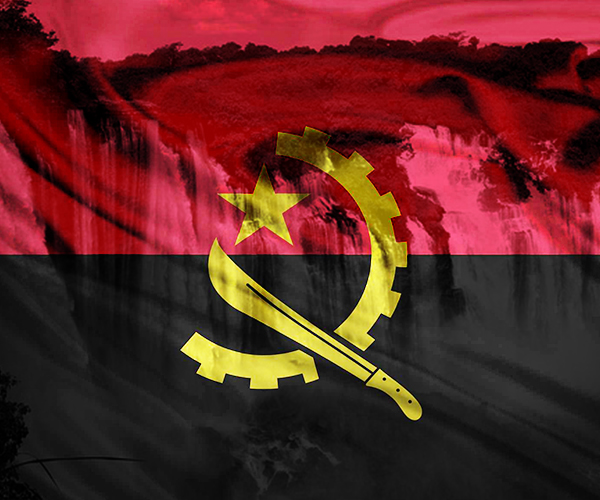


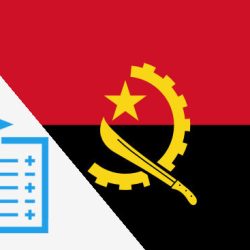
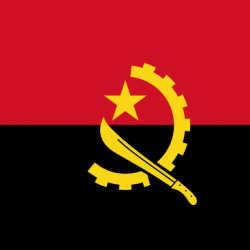
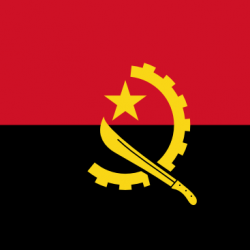
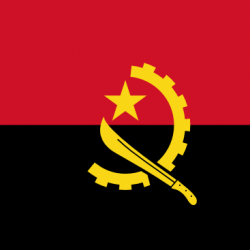
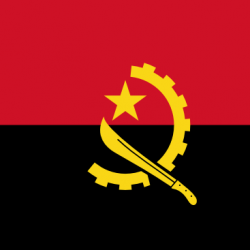
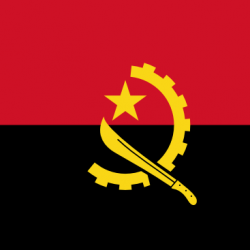
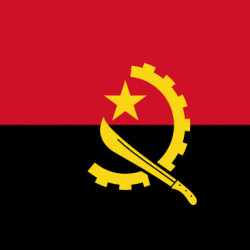
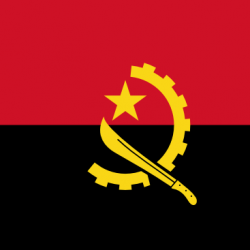
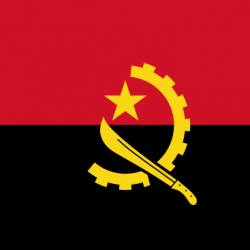
 We will not leak your personal information
We will not leak your personal information